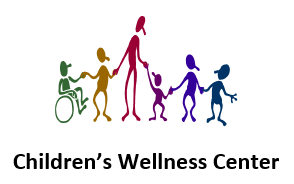Why is the sky blue? Why do dogs bark? Why do your feet smell bad? Why do I have to wear my coat? Why can’t we have ice cream? Why do we have to go to the store? Why can’t I have a new toy? Why, why, why!
If this string of questions sounds familiar to you, then you likely have a toddler who is going through the “why” phase. This common developmental phase usually begins around age two or three, and you will notice it because your child will start asking lots of questions that begin with “why.”
Why Do Kids Ask “Why?”
Learning and Curiosity
During the “why” phase, toddlers start to notice the world around them, and they begin developing natural curiosity, wanting to learn more about relationships, the reasons behind things, and causes and effects in the world.
Cognitive and Language Development
Asking “why” questions helps children to better their understanding of the world and the way things work, and by asking these questions, they start really developing their critical thinking skills while also building vocabulary and strengthening their communication skills.
Social Connection
Asking questions and attempting to engage in conversations is a simple way for children to connect and strengthen their relationships with their parents and other caregivers.
How to Respond to “Why” Questions Effectively
Why questions can range from mundane and simple to complex and sensitive. So, parents should be prepared to answer. Consider the following tips:
- Be Honest – Give children honest, simple, clear, and age-appropriate answers that your child can understand.
- Say ‘I Don’t Know’ – If you don’t know an answer, admit it. This shows your child that not knowing everything is nothing to be ashamed of. Plus, it provides an opportunity for the two of you to learn something new together.
- Start a Conversation – Use your child’s question as a conversation starter. Instead of simply answering their question, expand on the topic, guide their curiosity, and have a longer discussion.
- Turn the Question Around – “How do fish breathe underwater?” “Hmm…How do you think fish breathe underwater?” This pattern of asking your child to think about their question before you answer helps them learn to think critically and scientifically, as it challenges them to use their imagination to form a hypothesis. You can then ask them more questions about their idea before explaining how things really work.
- Be Patient – For many parents, the “why” phase can feel relentless, but understanding your child’s need to ask can help you respond with kindness and compassion, creating a safe space for open conversations with your child as they grow older — and this will be incredibly important as they enter school and adolescence.
Encouraging Curiosity During the “Why” Phase
Parents can use the “why” phase as a big opportunity to encourage and foster curiosity in their children. To do this, embrace the questions and encourage your child to use their critical thinking skills. Instead of answering their questions right away, turn the questions around and ask them what they think. Use their questions as a window into their interests and as inspiration for explorative activities.
To encourage curiosity, parents need to practice patience and compassion during the “why” phase. Be careful not to shut down, discourage, or dismiss your child’s questions. Instead, be positive and enthusiastic to encourage a safe space for exploration and curiosity.
Avoiding Frustration During the “Why” Phase
As much as your child’s curiosity is a thing to be celebrated and encouraged, we cannot ignore the frustration that can come from the long strings of questions that can, sometimes, begin to feel unrelenting and insincere, as if your child is asking for the sake of making noise and not really to know the answer.
The truth is that, sometimes, children ask “why” incessantly because they are testing boundaries and trying to learn proper social dynamics. As a parent, it’s your job to help them learn good social behavior and appropriate ways to ask questions (like when and how to ask politely).
If your child uses “why” to test your boundaries, do your best to stay calm and use it as a teaching moment to redirect them and correct their behavior. Plus, if your child’s questions are coming out with a whining voice, be sure to address their tone and let them know that you have trouble understanding them when they are talking in that way.
Sometimes, children also ask why as a bid for attention. Be aware of this. If your child is always asking questions at a time when your attention is elsewhere, acknowledge them but let them know that now is not a good time and that you will write down the question to talk with them about it once you are free.
Professional Guidance Through the “Why” Phase and Every Developmental Stage That Follows
When your child hits the “why” stage or any other developmental milestone, our pediatricians at Children’s Wellness Center will be here to guide you, advise you, and support your child’s health and happiness. To learn more about developmental stages and what to expect as your child grows and matures, we welcome you to contact us today.

